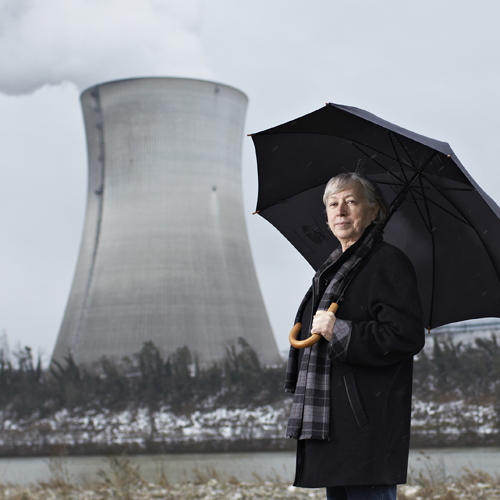The 2011 Goldman Environmental Prize winners were honored in San Francisco last night. In a ceremony at the Opera House, they were each awarded $150,000 for their grassroots work addressing pressing environmental issues around the world.
Environmental degradation from energy production is a common theme in the work of at least half the winners: Dmitry Lisitsyn, who’s worked to protect the ecosystems of Sakhalin Island from rapid destruction caused by companies exploiting the region’s petroleum reserves; Hilton Kelley, for environmental justice work on the Texas Gulf Coast, a region plagued with air-quality-related health problems due to emissions from the major refineries and petrochemical plants in the area; and Ursula Sladek, who created Germany’s first cooperatively-owned renewable power company.
This The New York Times story describes Sladek’s journey from homemaker disturbed by the effects on her own community from the Chernobyl disaster, to clean-energy activist. As Felicity Barringer notes in the story, Marin County has had its own battles surrounding the creation of a local utility, the Marin Energy Authority, which has a goal of providing 100% renewable energy by 2020. Currently, the company serves 9,000 customers in Marin with an energy mix containing 27% renewables (the state requires 20% currently), according to project coordinator Jamie Tuckey.
Sladek’s cooperatively-owned company aims to provide its 100,000 customers with 100% renewable energy by 2015.
“Climate change continues to be one of the world’s greatest challenges,” Sladek told a packed house, just before she accepted her award. “We all have to solve this problem, but not at the cost of nuclear pollution.”
Invoking the legacy of Russia’s nuclear disaster at Chernobyl and fresh images from Japan, Sladek’s call for the US to lead a global clean energy revolution was met with wild applause from the audience.
“Once again we are shown that the uncalculated risks of nuclear energy are too great to bear, especially as true alternatives exist today,” she said. “Germany’s transition from fossil fuels to clean energy sources has created enormous benefits. The United has even more superior green energy resources. The United States has far greater financial infrastructure. The United States should be the global leader in clean energy.”
Another common theme among the award winners this year is water. Prigi Arisandi of Indonesia was recognized for his efforts to stop industrial pollution of a river that provides drinking water for three million people, and Francisco Pineda of El Salvador won for his work (in the face of death threats) that has stopped or delayed a Canadian gold mining development from devastating a major source of the country’s water supply.
Pineda said that 90% of El Salvador’s surface water is contaminated. Through a translator, he told the audience, “We can live without gold, but we cannot live without water.”
Two of this year’s winners, Hilton Kelley and Raoul du Toit, were guests on KQED’s Forum program yesterday. You can listen to the interviews online.

